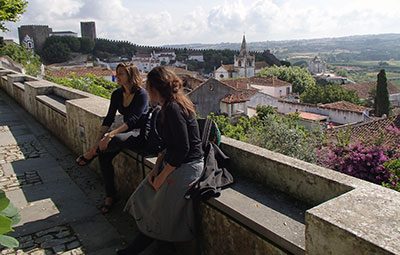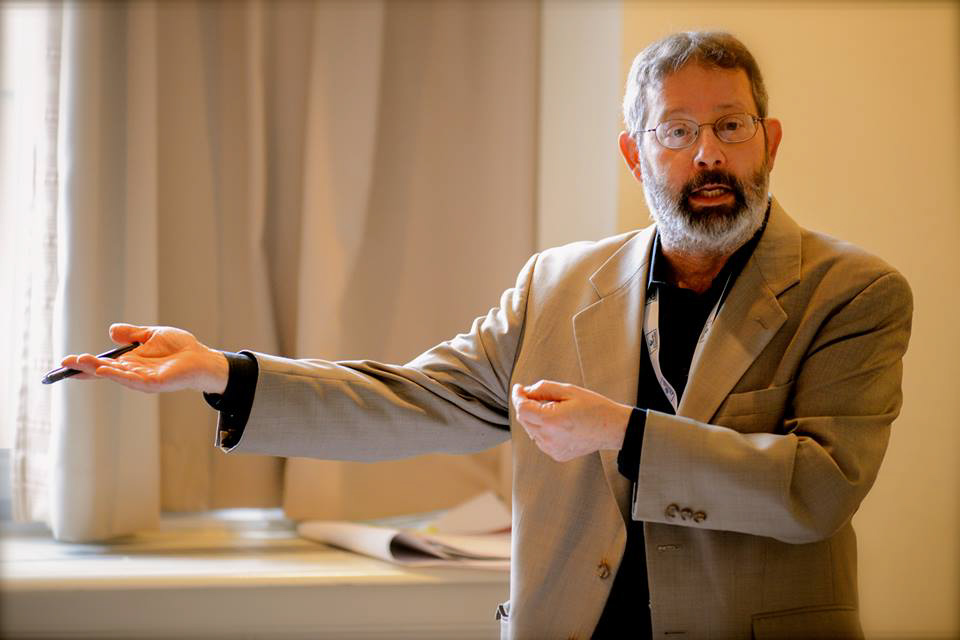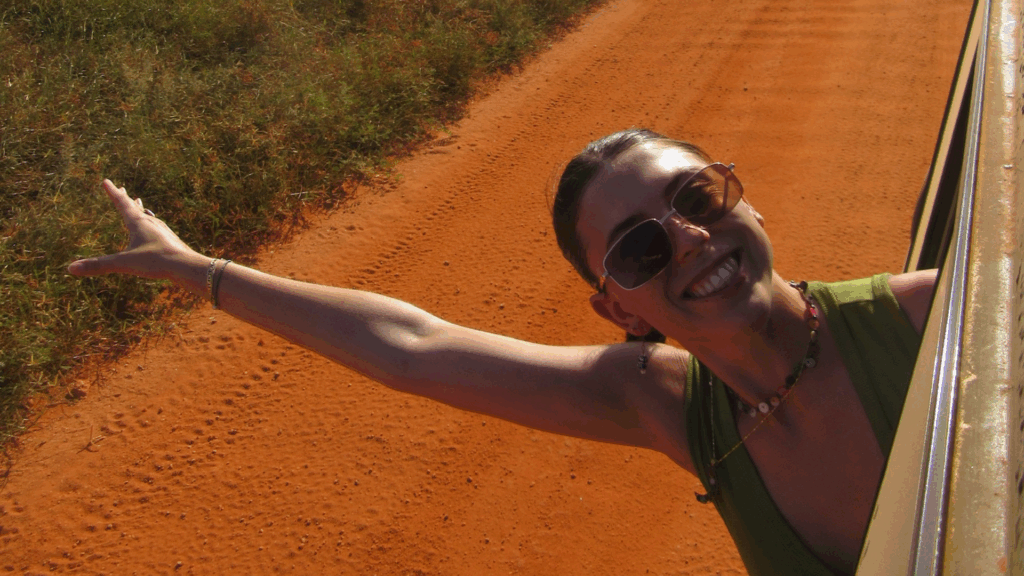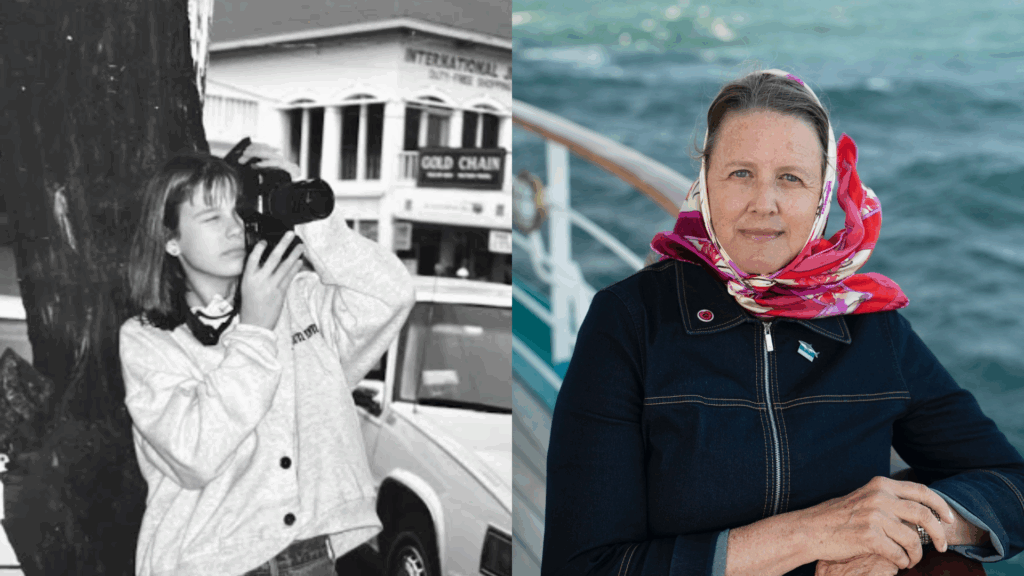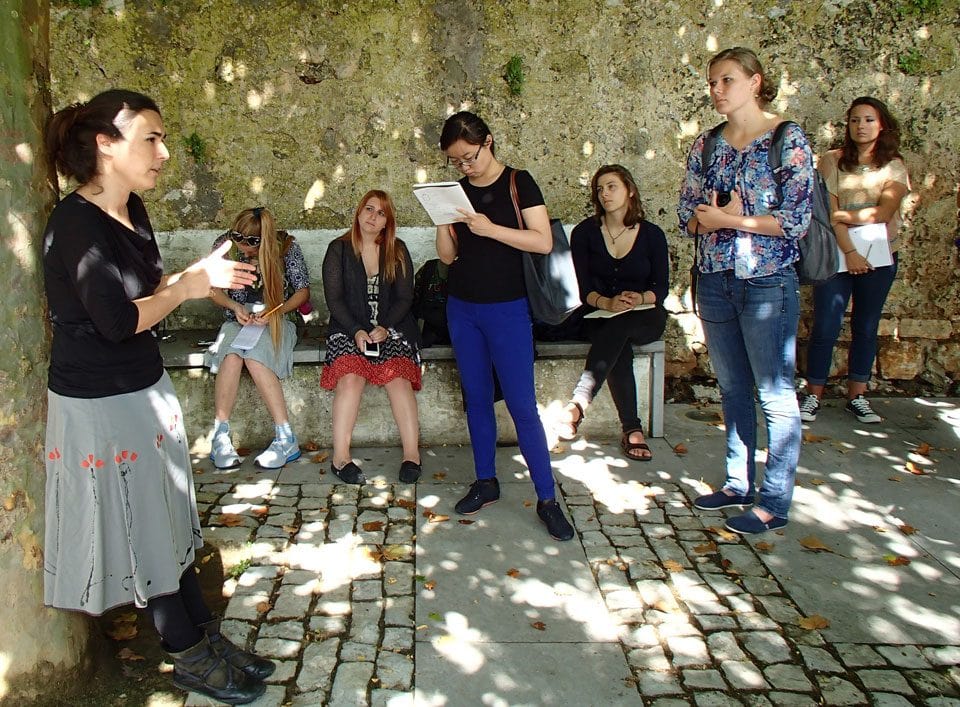
For their first Field Lab of the Summer 2014 voyage, students in Kathleen Adams’ Anthropology of Tourism Global Comparative Lens class visited two popular tourist destinations in Portugal: Obidos, a tiny walled town that is home to fewer than 100 year-round inhabitants and known for its annual medieval market and chocolate festival, as well as Fatima, a Catholic pilgrimage destination famed for its sanctuary developed around the site where Our Lady of the Rosary is said to have appeared to three shepherd children six times in 1917.
The objectives of the Field Lab were many: to gain first-hand insights into the parallels between early European pilgrimages and contemporary tourist trails; to learn about Portugal’s efforts to develop heritage tourism sites; and to observe tourism in action, to better appreciate the ritual aspects of touristic activities.
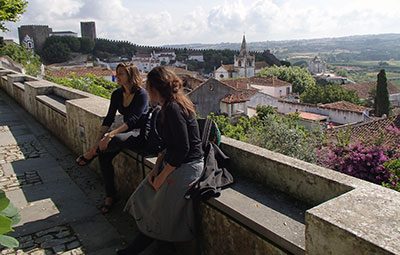
Students were charged with acting as anthropologists on these site visits, observing the “Four H’s of Tourism,” as coined by tourism scholar Valene L. Smith: Habitat, Heritage, History and Handicrafts. For example, for their follow-up reflections (an assigned essay due a few days after their Field Lab), students might detail any interactions between locals and tourists that they saw, or discuss the use of space for tourist activities, or note how heritage is represented for outside visitors. Even an examination of types of souvenirs sold at each of the very different tourist sites could apply to their anthropological research.
This Field Lab, an in-country educational field trip that requires mandatory attendance for each class offered on the ship this summer, was enriched by the expertise from two special guests. Cultural anthropologist and architect Dr. Marta Prista, spent several years studying the pousadas, upscale accommodations introduced in the 1940s in Portugal, in particular the m, located in a medieval castle perched above the village that first opened to guests in 1950. Dr. Prista was able to speak with authority on how the introduction of this luxury lodging — and a national effort led by dictator Ant√≥nio de Oliveira Salazar to shape countrywide heritage and tourism offerings — affected the poor residents of Obidos at the time.
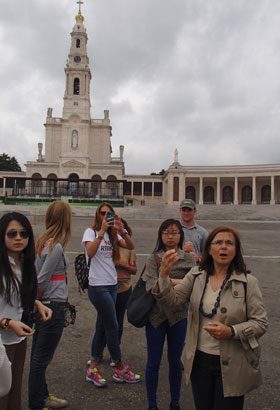
In Fatima, longtime freelance tour guide Filomena Santos Oliveira took students to the 19th-century family homes of Lucia Santos, Jacinta Marto and Francisco Marto — the three children who reported the apparition of Our Lady of the Rosary in 1917. They also toured the Sanctuary of Fatima, which is home to the original Chapel of Apparitions built on the exact site where the children had their apparitions, as well as the ornamental, massive Basilica of Our Lady of the Rosary and the even larger, modern Church of the Holy Trinity, which holds up to 9,000 parishioners at one time. Because Fatima attracts both tourists and pilgrims, the site was an ideal place for students to observe goings-on through an anthropological lens.
Kathleen Adams, who teaches the Anthropology of Tourism class and has worked on four different Semester at Sea voyages, said she always looks forward to in-country Field Labs: “They give students the opportunity to apply the abstract — something they may have read in texts — to on-the-ground places and spaces.”
Jenna Trizzino, who studies sociology at Prescott College in Arizona, said that she has already benefited from the first few days of her Anthropology of Tourism class, as well as the in-country Field Lab. “I have loved Marta’s insights today,” she said. “Everything we’re learning will make me rethink how I look at tourist destinations in the future.”
The distinctive feature of Semester at Sea is the opportunity it affords students to engage in global comparative education. On each voyage, Semester at Sea offers a set
of Global Comparative Lens courses that are designed to help students deepen their understanding of specific features of life and culture in the countries we visit on a given itinerary. Each course views the countries through a distinct lens, focusing on the art, music, religion, politics, environment, health, or other specific aspect of the countries we visit. These courses are designed to take maximum advantage of the opportunity to learn to think critically about their own societies and others by comparing. We ask each voyager to choose one course from among the Global Comparative Lens courses that best matches their academic interests.
Field Labs
Faculty design one Field Lab, or in-country educational trip, for each of their courses. A Field Lab constitutes an additional day of class and the same expectations are placed on a lab day as placed on a class day at sea. Field Labs and their respective assignments are a required part of each course and constitute approximately 20 percent of a student’s grade, as well as 20 percent of the course’s required contact hours.
- Students register for their courses and their field labs at the same time.
- Participation in a Field Lab is limited to those students and lifelong learners enrolled in the companion course.
- The cost of required Field Labs is included in voyage tuition.
– See more at: https://www.semesteratsea.org/discover-sas/academics/courses-field-labs/#sthash.NtMvfUuM.dpuf
